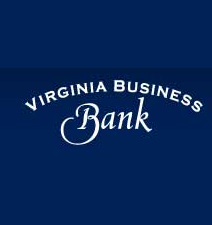 Virginia Business Bank has hired Davenport & Co. to help the bank raise capital.
Virginia Business Bank has hired Davenport & Co. to help the bank raise capital.
The privately-held bank planned on raising $6 million to $9 million last fall, but, given the economic climate, that has proved more difficult than expected, said chief executive Merlin Henkel.
The company was able to raise $1.5 million.
“As a result, we engaged Davenport at the end of last year to look at the options, from private equity [pools of investments] to straight investments. We are looking at everything,” Henkel said.
That might include selling the bank, or reaching out to a private equity group for possible investment.
“The bottom line is this: Regulators are looking for strong, strong, strong capital positions,” he said. “Banks can’t continue to grow in the future without additional capital.”
Henkel said that now is a lousy time to sell a bank because many are going for below book value, which means investors aren’t getting as much as they might if the bank can stick around until the economy rebounds and prices improve.
But the community banking industry is facing more challenges as commercial loans continue to sour and as the FDIC requires higher capital cushions. The insurance to help other defunct banks pay depositors is also creeping up, which increases another fee for small banks.
In a letter to shareholders from July 25, the bank reported a loss of $3,873,389 for the quarter ended June 30. “The earnings performance was affected by additional provisions to the reserve for loan losses of $3,851,000 as well the impact of a one-time special assessment paid to the FDIC,” the letter said.
But Henkel said the bank is profitable on a cash-flow basis since the first quarter. (You can read more about that first profitable quarter here. )
At the end of the second quarter, the bank had assets of $161.6 million. Loans were $128.3 million, and deposits were $136.8 million.
As of March 31, Virginia Business Bank had assets of $162.85 million (including deposits of $134.38 million) and loans of $136.69 million.
Aaron Kremer is the BizSense editor. Please send news tips to Editor@richmondbizsense.com.
 Virginia Business Bank has hired Davenport & Co. to help the bank raise capital.
Virginia Business Bank has hired Davenport & Co. to help the bank raise capital.
The privately-held bank planned on raising $6 million to $9 million last fall, but, given the economic climate, that has proved more difficult than expected, said chief executive Merlin Henkel.
The company was able to raise $1.5 million.
“As a result, we engaged Davenport at the end of last year to look at the options, from private equity [pools of investments] to straight investments. We are looking at everything,” Henkel said.
That might include selling the bank, or reaching out to a private equity group for possible investment.
“The bottom line is this: Regulators are looking for strong, strong, strong capital positions,” he said. “Banks can’t continue to grow in the future without additional capital.”
Henkel said that now is a lousy time to sell a bank because many are going for below book value, which means investors aren’t getting as much as they might if the bank can stick around until the economy rebounds and prices improve.
But the community banking industry is facing more challenges as commercial loans continue to sour and as the FDIC requires higher capital cushions. The insurance to help other defunct banks pay depositors is also creeping up, which increases another fee for small banks.
In a letter to shareholders from July 25, the bank reported a loss of $3,873,389 for the quarter ended June 30. “The earnings performance was affected by additional provisions to the reserve for loan losses of $3,851,000 as well the impact of a one-time special assessment paid to the FDIC,” the letter said.
But Henkel said the bank is profitable on a cash-flow basis since the first quarter. (You can read more about that first profitable quarter here. )
At the end of the second quarter, the bank had assets of $161.6 million. Loans were $128.3 million, and deposits were $136.8 million.
As of March 31, Virginia Business Bank had assets of $162.85 million (including deposits of $134.38 million) and loans of $136.69 million.
Aaron Kremer is the BizSense editor. Please send news tips to Editor@richmondbizsense.com.


